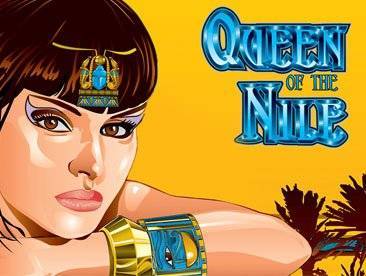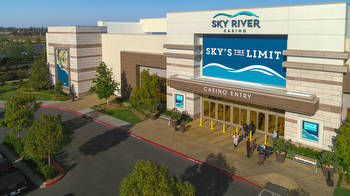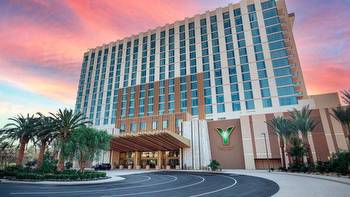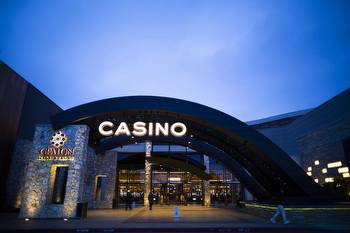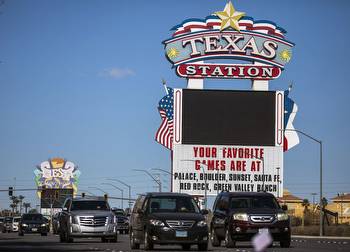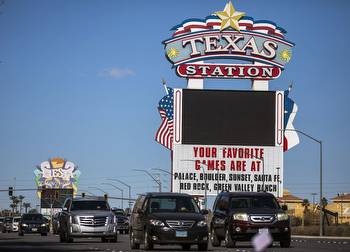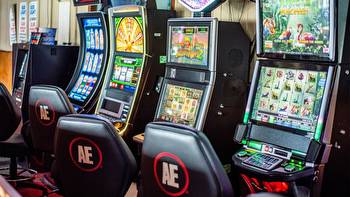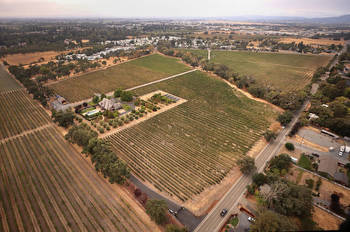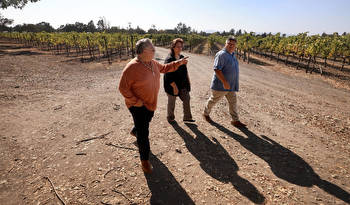Indy Gaming: Red Rock’s long-stalled tribal casino deal near Fresno moving forward
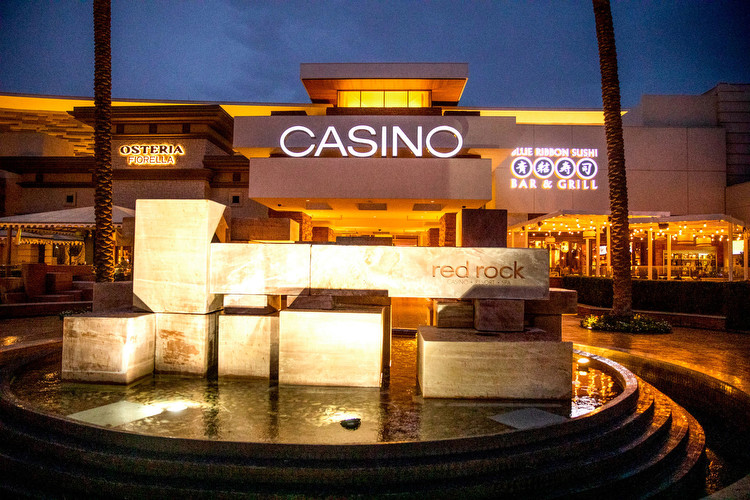
Approval from Indian gaming regulators allows the central California project to start construction nearly two decades after the initial agreement was signed.
Good morning, and welcome to the Indy Gaming newsletter, a weekly look at gaming matters nationally and internationally and how the events tie back to Nevada.
If a colleague or associate emailed this newsletter to you, please to sign up and receive your own copy of Indy Gaming in your inbox. - Howard Stutz
Red Rock Resorts found success in the last two decades operating casinos on behalf of California Indian tribes.
One gaming analyst believes the Las Vegas-based company will have similar results with its third tribal gaming venture, the North Fork Mono Casino & Resort, which has been stalled because of legal challenges for more than two decades.
Last week, the National Indian Gaming Commission approved a seven-year management agreement between Station Casinos — Red Rock’s operating arm — and the North Fork Rancheria of Mono Indians for a central California casino 30 miles north of Fresno. Construction is expected to begin later this year.
Within the area surrounding Fresno, there are five tribal casinos. California is considered the nation’s largest tribal gaming market, with a total revenue of $9 billion annually. There are 76 Indian casinos operated by 73 of the state's 109 tribes.
Jefferies gaming analyst David Katz told investors in a research note that the 100,000-square-foot development will cost between $300 million and $400 million and will have more than 2,000 slot machines, 40 tables and several dining outlets.
Based on information in a recent Red Rock Resorts filing with the Securities and Exchange Commission, Katz said Station Casinos will earn a 4 percent development fee and a 30 percent management fee based on the casino’s net income.
“These contracts have been a specific strategic differentiation for Red Rock and can be highly lucrative and accretive,” Katz wrote Sunday.
Station Casinos built and operated two California casinos: Thunder Valley Resort near Sacramento, which the United Auburn Indian Community owns, and Graton Resort Casino near Santa Rosa for the Federated Indians of Graton Rancheria.
Both casinos were turned over to the tribes when the company’s seven-year management agreements expired.
Station Casinos also built and operated the Gun Lake Casino near Grand Rapids, Michigan, before turning the property over in 2018 to the Match-E-Be-Nash-She-Wish Band of Pottawatomi Indians.
“Red Rock is no stranger to these projects, with significant success in recent endeavors,” CBRE Equity Research analyst John DeCree wrote in a research note Tuesday. During the company’s final full year operating the Graton property in 2020, Red Rock took in almost $82 million in management fees.
North Fork will be located on a 305-acre site off state Route 99 in Madera that the tribe deemed as a historical land connection in the early 2000s and began the process of taking the land into trust, which involves the transfer of a land title to the U.S. government to be held in trust for the benefit of a tribe, according to the Bureau of Indian Affairs.
Tribal leaders said in a statement the project earned local, state and federal support in the last decade based on the potential economic benefits it would have for the tribe and the surrounding community.
The Department of the Interior issued its support in 2011. Former California Gov. Jerry Brown negotiated a compact with the tribe in 2013. The Interior Department approved the land for a casino in 2016.
However, the site faced legal challenges from competing tribes and anti-gaming opponents over the ownership of the land and the legality of the tribe using the site for gaming. Given the size of the site, North Fork is expected to expand the property over time.
“No tribal gaming project in the history of our nation has received as much attention and scrutiny as North Fork,” former Tribal Chairperson Maryann McGovran said in a statement. “The delays have been dubious and cost our Tribe and community dearly.”
Red Rock Resorts has said little about the casino project over the last few years but is expected to provide additional information during the company’s fourth-quarter conference call on Feb. 7.
In November, Chief Financial Officer Stephen Cootey said the tribe had a single lawsuit pending in the California courts, but the company didn’t believe it would interfere with the gaming rights for the North Fork land and was continuing work on the design and lining up potential lending partners.
Illinois companies now control the bulk of Nevada’s slot route industry
Nevada’s two largest slot machine route operators sold their businesses to companies headquartered in Illinois.
The move showed the growing interest Illinois companies have in slot machine routes. The Midwest state has more than 47,000 slot machinelike video lottery terminals in 8,464 locations.
J&J Gaming and Accel control a majority of Nevada’s 19,280 slot machines that are operated in 2,043 locations. Both J&J and Accel have been seeking slot machine route expansion opportunities outside of Illinois.
Nevada does not provide a revenue breakdown from restricted gaming — bars, taverns, supermarkets, convenience stores and other businesses with 15 or fewer games — which is taxed through quarterly and annual fees per slot machine.
J&J closed its acquisition of Las Vegas-based Golden’s Nevada slot route business last week, paying a total of $251 million. In September, J&J paid $114 million for Golden’s Montana slot operations.
In 2022, Accel acquired Montana-based Century Gaming, Golden’s chief rival in both states, for $164 million.
J&J, which is majority-owned by Oaktree Capital Management, said the addition of Nevada gave the company slot machine route operations in five states. Route operators manage the slot machines through either a space lease or a revenue-sharing agreement. The companies also provide the technology and platforms for player loyalty programs.
Golden owns nine casinos in Nevada, including The STRAT Hotel, Casino & SkyPod. J&J will manage the gaming operations of the company’s more than 60 Nevada taverns, operated under the PT’s, Sierra Gold and other brands, under a five-year agreement.
News, notes and quotes
Former MLB standout Bautista buys Las Vegas Lights soccer team
Former Major League Baseball star José Bautista is now the principal owner of the Las Vegas Lights FC soccer team, which plays in the United Soccer League (USL).
Bautista’s ownership group acquired the team from Brett Lashbrook, who founded the club in 2018. A sale price was not disclosed. The team plays at Cashman Field in downtown Las Vegas.
“As an owner, I am committed to having a real impact on the local community and fostering a deep connection with the people of Las Vegas,” Bautista said in a statement.
A native of the Dominican Republic, Bautista played with eight teams, most notably the Toronto Blue Jays, over a 15-year major league career. He is best known for an epic bat flip
***
AGA launches human trafficking detection program
The American Gaming Association (AGA) launched an online training program to educate gaming industry employees on how to combat human trafficking.
The Washington, D.C., trade organization said it was undertaking the effort, in partnership with RG24seven Virtual Training, as a commitment to communities where gaming operates.
“This free training empowers employees at all levels to spot and prevent cases of human trafficking,” said AGA Vice President Alex Costello.
The training utilizes videos and quizzes to educate gaming employees, who will receive a certificate upon successful completion.
***
Sports betting operators oppose California legalization effort
Four of the leading sports betting operators are taking a pass on efforts to legalize the activity in California. According to the sports betting website PlayUSA, FanDuel, DraftKings, BetMGM and Fanatics announced opposition to an effort to pass a sports betting ballot question this year.
A spokesman for the operators said the companies believe the initiative would fail and set back productive conversations for legal sports betting.
The companies spent millions of dollars on a failed sports betting initiative in 2022. California Indian tribes, whose own sports betting efforts failed in 2022, are also opposed to the initiative.







